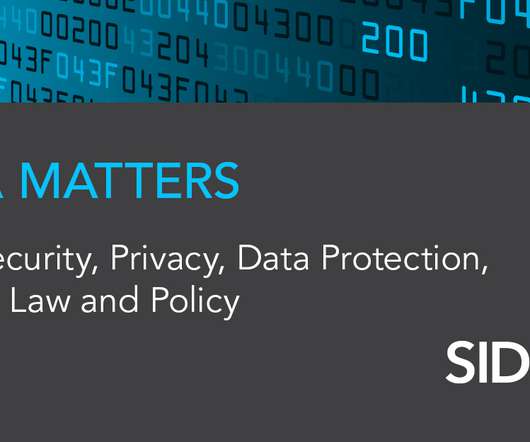Saudi Arabia’s New Data Protection Law – What you need to know
DLA Piper Privacy Matters
OCTOBER 7, 2021
The Middle East’s data protection regulatory landscape is complex, and continues to develop with Saudi Arabia’s ( KSA ) newly published Personal Data Protection Law ( PDPL ). While the PDPL contains the main features of a modern data protection law, it cannot be considered a direct analogue of the GDPR. Direct marketing.













Let's personalize your content